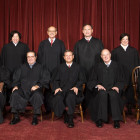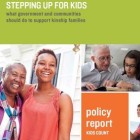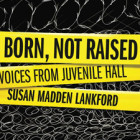
Snapshots From the Inside, A Powerful Photo Exhibit Explores the Cruelty of Juvenile and Adult Detention
|
NEW YORK -- As Ara Oshagan rocked his first-born son to sleep he prepared to meet monsters. While he bounced and cooed his boy, Sebouh, to sleep to the achingly plaintive melody of Beethoven’s Moonlight Sonata he was the image of a doting father, but in his mind he was quietly bracing himself to meet some of what many considered to be California’s youngest and most dangerous criminals. The geo-physicist turned documentary photographer had never been behind the walls of the juvenile detention facilities that dot the outskirts of Los Angeles along the spine of Interstate 5 in the Central Valley, but the following morning he was going to take his camera, walk in, and take pictures of killers and gangsters. “I expected the worst,” he said. “The worst of the worst; The ones glaring at you in those orange jumpsuits.






